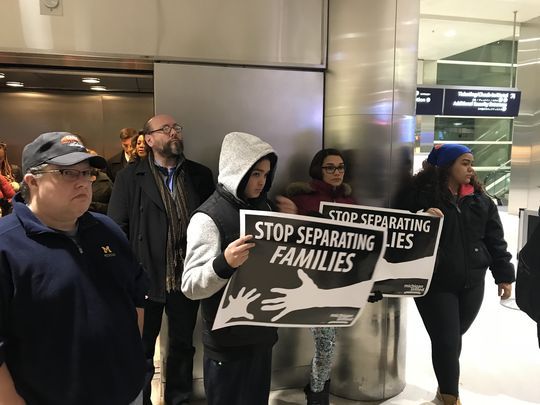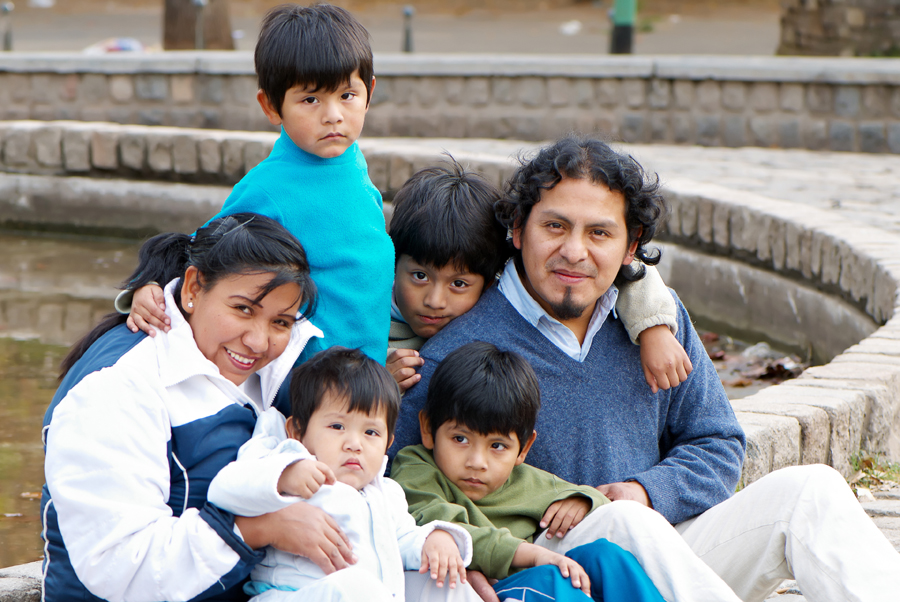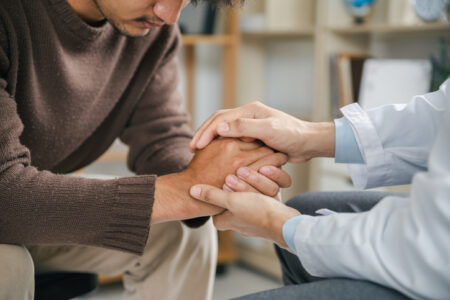
Share On Social!
We know that kids of migrant workers, who are mainly Latino, grow up exposed to a high level of trauma.
Trauma can be neglect, abuse, poverty, as well as separation between parents and children. Children separated from their parents are at high risk for more emotional problems and delays in growth and development.
Trauma can even cause physical problems, according to a new study.
“There are also other emotional scars that manifest themselves in physical ailments that, if left untreated, can turn into serious illnesses that can last a lifetime,” according to a news release about the study, led by Ashley Marchante-Hoffman of the University of Miami.
Shedding Light on Childhood Trauma among Latino Immigrants
Latino immigrant children face a variety of health issues.
The migration experience contributes to Latino children’s stress. These children also have a high rate of untreated mental health issues, according to a Salud America! Research Review. They also suffer childhood trauma that can affect sleep, appetites, and cognitive growth.
 Yet little is known about the link between trauma and present physical complaints for immigrant children, Marchante-Hoffman said.
Yet little is known about the link between trauma and present physical complaints for immigrant children, Marchante-Hoffman said.
“I noticed that children were coming in to their primary doctor complaining of headaches, stomachaches, sleep problems and the link between traumatic experiences and physical symptoms was not always made,” she said.
So Marchante-Hoffman began to study this issue.
She surveyed 152 immigrant children ages 8-17 and several parents. Most were Venezuelans who had left due to violence and the political/economic crisis. The rest came from numerous countries in Central America and the Caribbean, as well as Mexico.
Over 70% of the participants had experienced at least one traumatic life event.
“For example, one young girl who had been exposed to multiple acts of violence—including watching family members killed and physical assaults of her immediate family—came to her primary care doctor with complaints of anxiety and physical pain,” said Marchante-Hoffman in the news release. “She was immediately referred to a psychologist within the clinic.”
Marchante-Hoffman also stated that mental health care is only a temporary solution for some of these children.
A prime example of this is children who are experiencing sleeping problems can develop more serious sleep disorders in adulthood if they do receive proper treatment. Both mental health care professionals and primary care physicians are imperative to improving overall health in immigrant children, she said.
“Providing psychological treatment to children is crucial so that aches and pains that could be temporary do not turn into major physical problems later on,” Marchante-Hoffman said, according to a news release.
What Can You Do?
Find a way to support children.
“Having a supportive adult, even just one, buffers kids from the negative effects of whatever adversity they are experiencing.” said Zoe E. Taylor, a researcher at Purdue University who is studying mental health and resiliency in the children of Latino migrant farmworkers.
One way to do that is to create a trauma-sensitive school.
The new Salud America! “Trauma Sensitive School Action Pack” is a free guide with coaching to help school personnel talk to decision-makers, build a support team, craft a system to identify and support traumatized students, and more!
By The Numbers
142
Percent
Expected rise in Latino cancer cases in coming years



